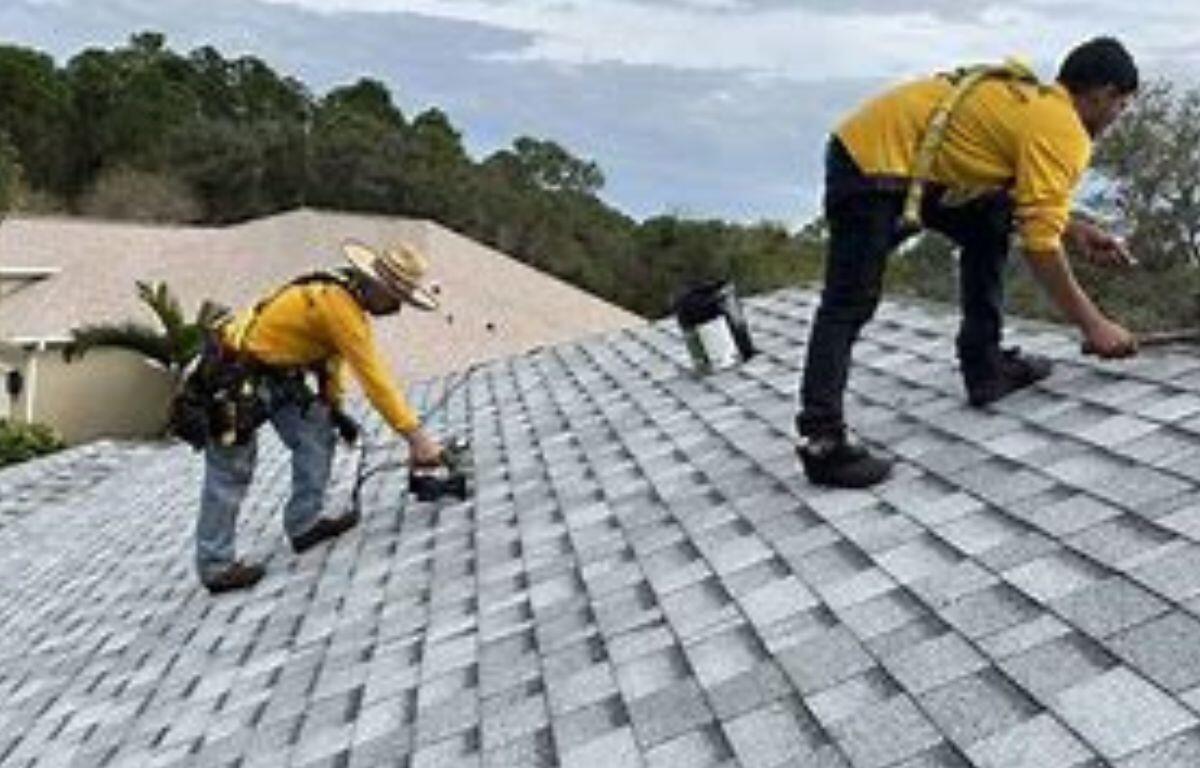CHAMPAIGN, IL (Chambana Today) – Professional roofers have the knowledge and skills to diagnose problems accurately and offer the best solutions. With years of experience, companies like Savior Roofing understand roofing systems in-depth and can provide quality work that DIYers or inexperienced contractors can’t.
Why Should Homeowners Call a Professional Roofer?
Brett, CEO and Vice President of Savior Roofing, explains that the primary benefit of hiring a professional roofer like Savior Roofing is safety. “When you ascend to your roof, you want to make sure you’re using safe practices, and you also need to know what to look for,” Brett says. Many roofs may not need a full replacement, but simple repairs could go unnoticed without professional help. “It’s important to get an honest contractor to assess the roof properly,” he adds.
Identifying Roof Damage: What to Look For
When assessing potential roof damage, homeowners should check for signs like curling or missing shingles. “Blown-out shingles might end up in your gutters or on the ground,” Brett explains. Additionally, granules from shingles in the gutters or downspouts are often a warning sign. “On the inside, staining on the ceiling or leaks are a definite indication there might be an issue with the roof.”
How Long Does a Roof Last?
Brett notes that residential roofs typically last 20 to 30 years, depending on the type of material used. “The key is getting your roof looked at before leaks start,” he advises. Regular maintenance and timely repairs can help maximize the lifespan of your roof.
Types of Roofs and Common Issues
Savior Roofing handles all types of residential and commercial roofs, including asphalt, metal, slate, and low-slope commercial roofs such as EPDM, TPO, PVC, and spray foam roofing. According to Brett, asphalt shingles are the most common, though other materials can provide different aesthetic appeals and lifespans. “Each roof type has its pros and cons depending on your budget and needs,” he adds.
Maintaining Flat Roofs: The Importance of Drainage
Flat roofs require special attention, especially when it comes to drainage. “The key is normal maintenance,” Brett emphasizes. He recommends having a professional inspect the roof at least twice a year to ensure the drains are clear and functioning. “Gutters should be cleaned regularly, and if your roof has scupper drains, make sure they’re not blocked,” he advises. This regular upkeep helps avoid costly repairs down the road.
Preparing for Storm Damage: What to Do First
As spring storms approach, Brett advises homeowners not to call their insurance company immediately. “The first thing you should do is contact us for a free roof inspection,” he suggests. After assessing the damage, the Savior Roofing team will guide homeowners on whether filing an insurance claim is necessary. Brett cautions that many people file claims for minor repairs that may not require an immediate replacement. “Often times there is minimal damage that will not exceed your deductible amount” “The last thing you want is an unwarranted claim on your insurance policy. Let the professionals at Savior Roofing asses the damages, before you contact your insurance company. We want to provide an honest assessment before any claims are made,” he says.
What to Do When You Need a New Roof
If your roof is beyond repair and needs replacing, Brett encourages homeowners to reach out to Savior Roofing. “We offer competitive rates, and we want to make sure that your roof is truly at the end of its lifespan before proceeding with a replacement,” he explains. For roofs in need of minor repairs, Savior Roofing can also help. “Sometimes it’s just a couple of shingles or a small leak that needs fixing,” Brett adds.
Understanding Major vs. Minor Repairs
Brett explains that major repairs typically involve fixing storm-related damage like tree falls or significant leaks. Minor repairs, on the other hand, may involve simple fixes like replacing blown-out shingles or repairing flashing. “We handle both types of repairs efficiently and affordably,” he assures.
Why Choose Savior Roofing for Local Storm Damage?
With a reputation built on reliable, high-quality service, the company prides itself on being a local fixture in the community. “You want a trustworthy, local company to help you after the storm,” Brett says. “Savior Roofing has completed over thousands of insurance claims and is here for you before and after the storm.” Change to “over thousands of”
How to Get in Touch with Savior Roofing
If you need roof repair, replacement, or maintenance services, Brett encourages homeowners to reach out directly. “The best way to reach us is through our website, SaviorRoofing.com,” he says. “You can also call us at 217-253-5430 for personalized assistance.”
Preparing for Storm Damage: What to Do First
Brett cautions that many people file claims for minor repairs that may not require an immediate replacement. “Often times there is minimal damage that will not exceed your deductible amount” “The last thing you want is an unwarranted claim on your insurance policy. Let the professionals at Savior Roofing asses the damages, before you contact your insurance company”


